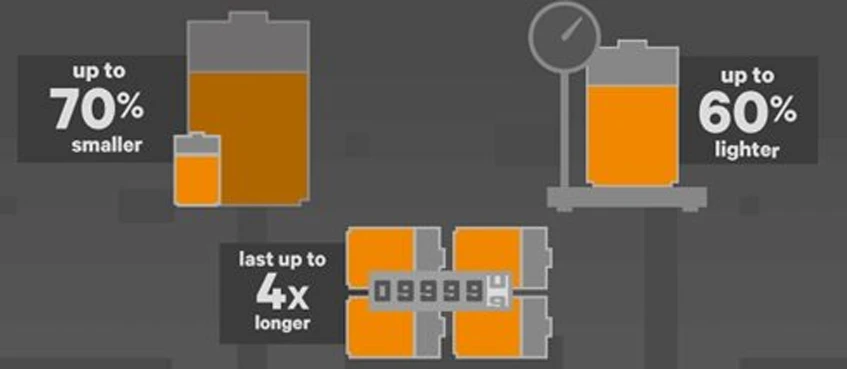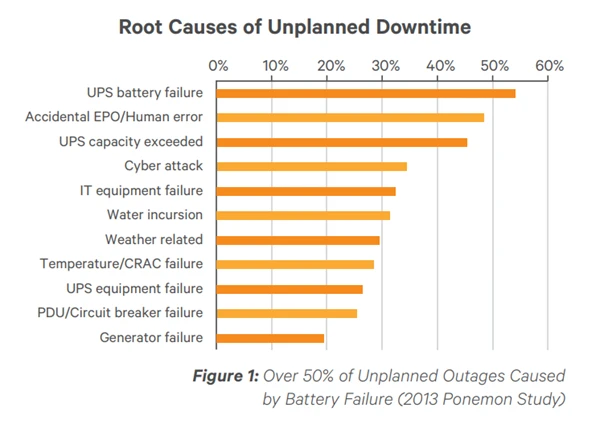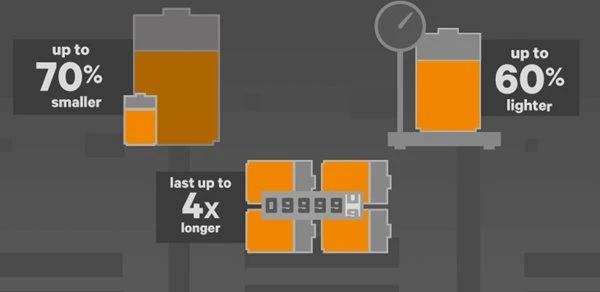December 18, 2017 | Rob Hirschberg
Will Lithium Ion Batteries Gain Traction in the Data Center?
News Alerts & Updates
Join our email newsletter for industry trends, best practices, company news, & more.

Share
Many IT professionals have been unimpressed by how their batteries have inconsistently performed within their critical facilities. There is a need for an improved energy storage solution in the data center. Traditional lead-acid batteries paired with uninterruptible power systems (UPS) have been the main source for providing brief ride-through time for data center professionals. Many facility personnel have witnessed the negatives of VRLA (Valve Regulated Lead-Acid) batteries at some point. An alternate option to lead-acid batteries in the data center are lithium ion batteries.
Lithium Ion Batteries Have Revolutionized Multiple Industries
Lithium ion batteries (LIB) are currently transforming many industries across the globe. We can attribute the commercial success of LIB to enabling our electronics to become smaller, operate longer and be more powerful. Although lithium ion batteries have transformed our consumer electronics, they have yet to have to have a big impact on the data center. Data centers share the same need as consumer electronics for more power, longer run times, safe operation, smaller battery space, and a justifiable price point, but are Lithium Ion batteries ready for the data center?
Why Lead-Acid Batteries Aren’t Cutting It
Facility professionals know that traditional lead-acid batteries are often considered the ‘weak link’ in their data center’s UPS power chain. Many strings of batteries are required to support today’s data centers; therefore, it can leave the most experienced facility personnel worrisome of a power failure. Lead-acid batteries tend to be maintenance-intensive, heavy, and in need of frequent replacement. According to the Ponemon Research Institute’s 2013 study (1) on data center outages, 55% of the unplanned failures were tied to the common lead-acid battery (1).

On average, VRLA batteries which support critical applications need to be replaced every 4-5 years. Data Center personnel are enthusiastic when they hear that lithium ion batteries for data centers can have life spans up to 4 times as long as VRLA batteries which equates to fewer battery replacement cycles and fewer operational disruptions.
The Benefits of LIB in the Data Center
The comparative power provided in an LIB solution versus a VRLA delivers a significant weight savings of up to 60% and LIBs have higher energy densities than VRLAs - this allows the solution to be up to 70% more compact (2). This means a facility can steer away from having big battery room(s). LIB batteries can safely operate at higher ambient temperatures without degrading which can save on cooling costs for data centers. Another benefit of Lithium Ion batteries is their shelf life. LIB batteries can last 18 months with little to no attention.

Critical facility personnel look for realistic solutions that perform and have a positive ROI. A TCO (Total Cost of Ownership) evaluation for energy storage should include the initial cost, installation, service / maintenance, replacement expense, shipping and disposal. Currently, the initial cost of an LIB solution is about 1.75x higher than that of a standard VRLA (1). We should expect moderate price reductions as the technology’s deployment rate continues (3).
The Prediction of LIB’s Future
After comparing lithium-ion and lead-acid energy storage solutions, it is apparent that the future looks encouraging for LIB in the data center. They are designed to bring extended life, reduced weight, smaller size and greater flexibility to modern data center providers (4). No one knows for sure when LIB will become standard within critical facilities. Financial Analysts project that Lithium-Ion batteries will garner 40% of the data center ups battery market share by 2025 (3). This is an astonishing prediction for a market that is not necessarily known for fast technological advancements.
In conclusion, Lithium Ion Batteries will inevitably gain traction in the Data Center, it is just a matter of when. Currently, early adopters are paving the way for the future of LIB in the data center. As these early deployments of LIB prove to be successful, then price reductions will follow and interest in LIB will increase.
References:
Explore More Critical Power Articles



